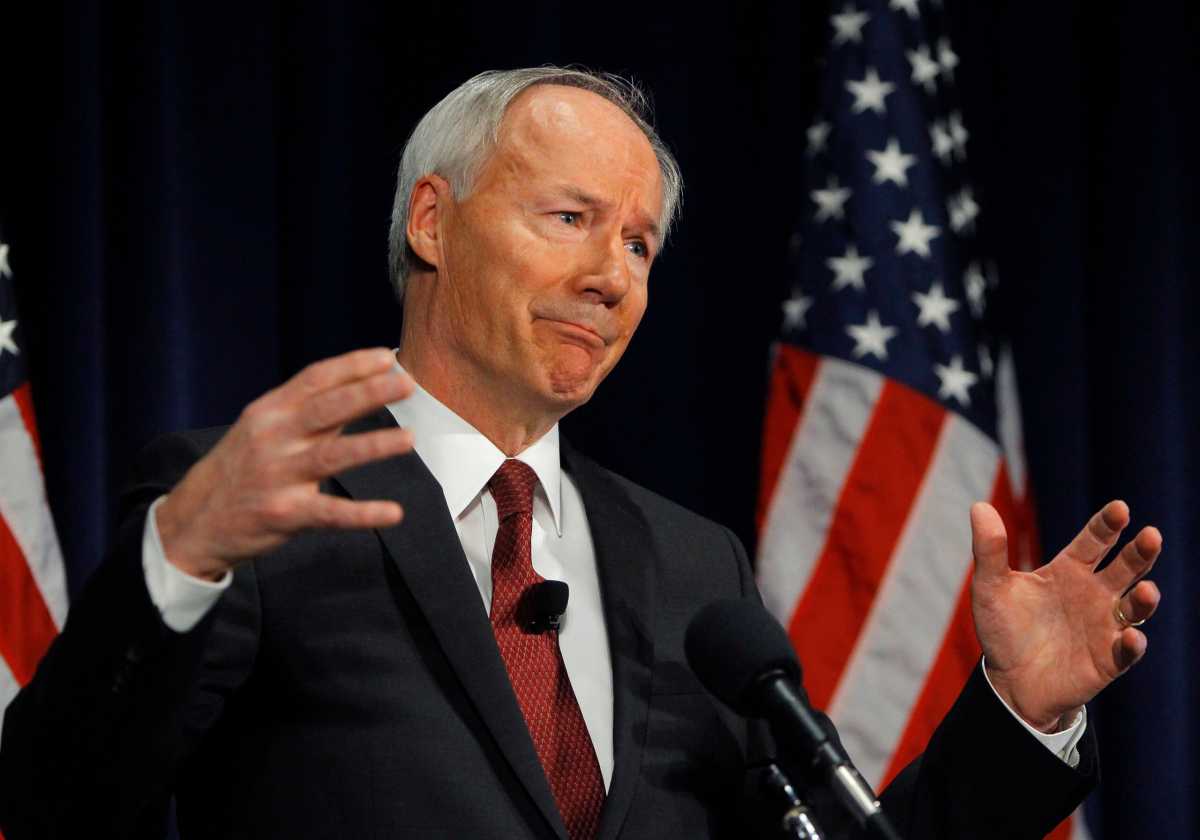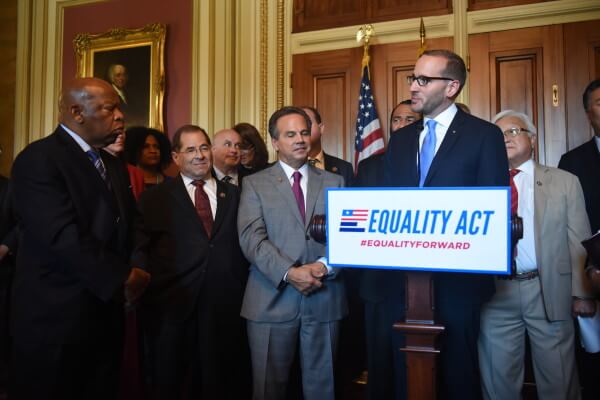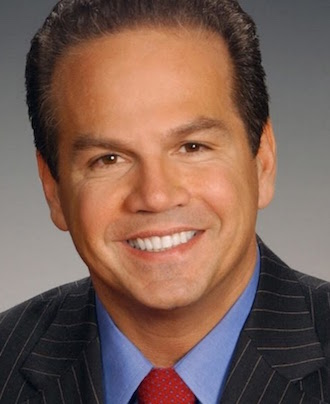In a span of just two days, the governors of Arkansas and Tennessee signed bills banning transgender women and girls, as well as some non-binary individuals, from participating in school sports.
Arkansas Governor Asa Hutchinson signed his state’s bill on March 25 and Tennessee Governor Bill Lee followed suit on March 26 with similar legislation. The states are the latest to enact such laws in the weeks since Mississippi became the first state this year to approve an anti-trans sports bill.
Arkansas’ “Fairness in Women’s Sports Act,” or SB 354, restricts students from participating in accordance with their gender identity and stipulates that athletes should be separated based on “biological sex.” Throughout the bill’s text, legislators double down on transphobic claims, pointing to “biological differences” to make an argument that there are unfair challenges to cisgender women and girls in sports.
Cisgender girls who feel they have been negatively impacted by transgender athletes can sue schools for monetary damages. Violators of this law could also face retaliation from state and local sports agencies and associations. Since the bill’s passage, advocacy groups have condemned the legislation.
Tennessee’s bill, meanwhile, requires student-athletes in middle school and high school to play according to the information listed on their “original” birth certificate — which is clearly an attack on non-binary and transgender individuals in a state where folks are not allowed to amend the sex on their birth certificates. Those without a birth certificate are required to show some other sort of proof “indicating the student’s sex at the time of birth.”
The legislation further adds to the burden on trans youth by requiring that “the student or the student’s parent or guardian pay any costs associated with providing the evidence required to establish the student’s gender at the time of birth.”
After Governor Lee signed the bill in Tennessee, the American Civil Liberties Union responded with a short message — “We’ll see them in court.”
Anti-trans sports bills are proving to be bad for business across the nation. Dozens of major corporations took a stand against proposed bills aiming to restrict transgender athletes and pressure is mounting on the NCAA to pull competitions from states enacting such laws. The Human Rights Campaign (HRC) responded to the legislation in Arkansas by purchasing an ad during Arkansas’ NCAA March Madness Sweet 16 game to publicly denounce the policy.
“Governor Hutchinson would have been wise to focus his efforts on caring for and protecting Arkansans from COVID-19 and its economic fallout,” HRC’s Arkansas state director, Eric Reece, said in a statement. “Instead, this bill will likely create economic headaches for the state when Arkansans need help the most. There’s no ‘balancing out’ this discriminatory bill. Transgender kids will be hurt by his actions today, and Arkansas is worse off for his actions.”
Legislative efforts to sideline transgender athletes have not been so successful in other states, such as Utah and South Dakota, though South Dakota Governor Kristi Noem has still signaled support for a modified version of a sports ban. Several other states could also pass anti-trans sports bills in the coming weeks. Last year, Idaho’s efforts to pass laws attacking trans youth were snarled when Chief US District Judge for Idaho David C. Nye issued an injunction in August. That measure sought to subject student-athletes to invasive “testing.”
Contrary to the rhetoric pushed by Republicans in statehouses nationwide, research compiled by the Center for American Progress (CAP) stressed the benefits of gender-affirming sports policies on all youth. The research indicated that inclusive policies combat outdated gender stereotypes and are especially critical to improving mental health and reducing suicidal thoughts among transgender students.
To sign up for the Gay City News email newsletter, visit gaycitynews.com/newsletter.




































